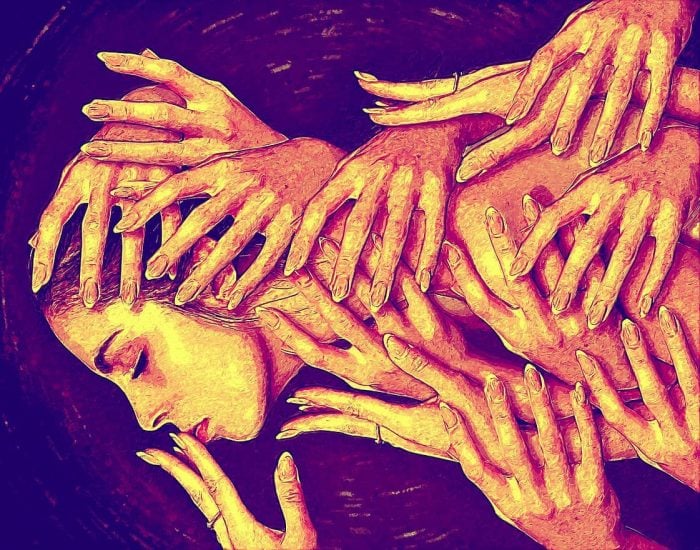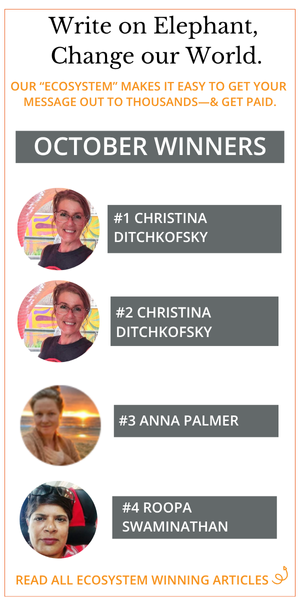My friends were making me sick.
And I don’t mean this in a “bugging me” kind of way.
I’m saying, my friends were making me physically sick. After being with them, my head throbbed for hours, fatigue kicked in, and I felt angry.
I pulled away and placed a distance between us to better understand it. My life, suddenly, became quiet. The silence was deafening and loneliness circulated around me. I felt it above my head and below my feet, and some days it stared me directly in the face. It had to be this way, though, being alone was better than feeling sick and tired all of the time.
I never had social anxiety; I always enjoyed being around people. Sure, I got a little nervous in social environments, but nothing serious. Besides, I know many people who suffer with social anxiety, and this was different.
In an energy medicine seminar, I learned that many people merge with their feelings. This rang true for me and seemed relevant to how I was feeling with my friends. If I was feeling sad, I was inclined to label myself a sad person, and I didn’t allow for sadness to naturally flow through me and release. Instead, I felt sad the entire day, or possibly into the next day. I did the same with other emotions, too. I began to wonder if I was holding on to and identifying with my feelings and all of my friends’ emotions as well.
I have read about empaths, people who are overly empathic. But, the qualities of an empath seem to be inherent, and I felt my behavior was learned. As a child, I learned to carry other’s pain—their heartache and their happiness—as if it were mine. I did this in order to be loved and well-liked.
I felt my mother’s unhappiness within her marriage, deeply. And I felt my father’s disappointment—with all my heart. When I told a family therapist I wanted my parents to separate because I didn’t want their sorrow in my body anymore, she assumed I was confused. I explained to her that I had not mistaken my own sadness for theirs, rather they were one and the same.
I wasn’t only merging with my emotions, I was taking on other’s feelings, too. And now this pattern was making my body shutdown. I was sponging up everyone’s problems, everyone’s everything.
Merging with other’s emotions meant I would jump into whatever a friend may share with me, as if their dilemmas or successes were my own. I could feel their pain, their worries, their discontent, and could mirror their feelings back to them—authentically. But, nothing was moving through, I was carrying all of this heaviness in my body and my soul.
When a series of tough events happened (or when the sh*t hit the fan) in my life, I no longer had the internal structure to carry all of the emotions I once did. Or maybe this was inevitable and I would have exhausted myself, eventually.
I didn’t have any more of my heart to give out; I was empty, just a stump of the tree I once was, like the glorious tree from The Giving Tree by Shel Silverstein. I, too, had given every last piece of myself away out of love and for my desire to be loved.
I am still recovering what was lost. I have taken the space I need to replenish, and I have kept my social circle (and social media) small. I am letting go of the pattern to merge.
I am learning that being present for another does not mean I wear their heartache or their remorse; nor does it mean I need to feel their joy or excitement as my own.
Those sentiments and experiences are for them to have and for me to witness.
There is a difference, I am coming to learn, between holding a friend’s hand when they are down and trying to swallow their pain and prevent their suffering.
Being available for those I care for means I trust that their experiences are all meant for them: the good, the bad, and the ugly. It means I am rooting for you, I am praying for you, and I am listening, but I can not deplete myself.
“I root myself deep within the ground,
my trunk sturdy;
branches reaching—
covering myself in golden leaves, yellow and green.
I grow wild and free and generously.
Always saving a part of me,
just for me.”


 Share on bsky
Share on bsky





Read 20 comments and reply